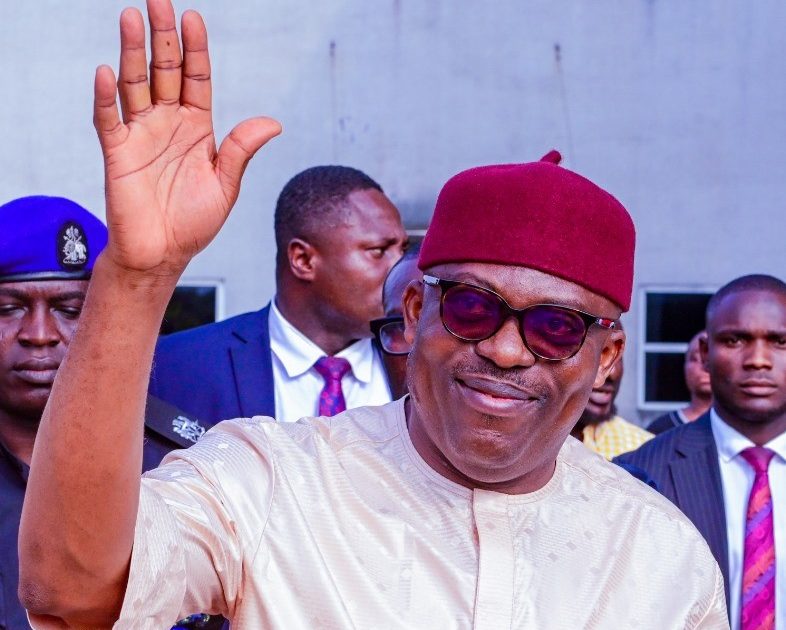The suspension of Rivers State Governor Siminalayi Fubara, his deputy, and members of the state assembly by President Bola Tinubu has ignited a firestorm of debate across Nigeria, with opposition parties and civil society organizations raising serious concerns about the growing militarization of democracy. The crux of the controversy lies in the perceived erosion of democratic processes and the potential for authoritarian overreach by the executive branch. Critics argue that the declaration of a state of emergency and the subsequent appointment of a sole administrator in Rivers State represent a dangerous precedent that could undermine the foundations of Nigeria’s democratic system. They contend that such actions not only circumvent established legal and constitutional frameworks but also embolden the executive branch to intervene in the affairs of democratically elected governments, thereby jeopardizing the delicate balance of power and potentially paving the way for future abuses of authority.
At the heart of the opposition’s argument is the assertion that President Tinubu’s actions in Rivers State are a clear departure from established democratic norms and principles. They point to the lack of constitutional provisions for the appointment of a sole administrator, arguing that such a position is an extra-legal invention designed to consolidate power and circumvent the will of the people. Furthermore, they contend that the suspension of the governor, deputy governor, and state assembly members represents an undue interference in the affairs of a democratically elected government and sets a dangerous precedent for future executive overreach. The opposition has characterized the president’s actions as a “coup,” not a legal action, highlighting the perceived severity of the situation and the perceived threat to democratic governance. They warn that such actions could embolden other political actors to resort to extra-constitutional means to achieve their objectives, further destabilizing the political landscape and undermining the rule of law.
Concerns about the militarization of democracy extend beyond the specific events in Rivers State. Critics point to the increasing reliance on military and security forces in addressing political and social unrest, arguing that such an approach not only undermines democratic institutions but also creates a climate of fear and intimidation. They maintain that the proper response to political disagreements and social unrest lies in dialogue, negotiation, and adherence to constitutional processes, not in the deployment of force or the imposition of emergency measures. The opposition argues that a heavy-handed approach to governance risks exacerbating existing tensions and alienating large segments of the population, thereby creating conditions that are ripe for further instability and conflict.
Civil society organizations have echoed the concerns raised by the opposition, warning that the erosion of democratic institutions poses a grave threat to the future of Nigeria. They argue that a strong and independent judiciary, a vibrant civil society, and a free and independent press are essential for holding power accountable and ensuring that the rights and freedoms of citizens are protected. They express concern that the current trend towards executive dominance and the weakening of checks and balances could undermine these vital institutions and create an environment in which abuses of power become rampant. Some have called for a national conference to address the perceived flaws in the current constitution and to chart a new course for the country, one that prioritizes democratic principles and the rule of law.
Conversely, supporters of President Tinubu argue that his actions in Rivers State were necessary to prevent further instability and maintain order. They contend that the protracted crisis between Governor Fubara and his predecessor, Nyesom Wike, had created a volatile situation that threatened to escalate into violence and chaos. They maintain that the president, acting within his constitutional powers, took decisive action to prevent the situation from deteriorating further and to restore stability to the state. Supporters also point to the approval of the state assembly as evidence that the president’s actions were taken in accordance with due process and were not an arbitrary exercise of power.
The unfolding events in Rivers State have sparked a national conversation about the delicate balance between executive power and democratic principles. The clashing perspectives highlight the inherent tensions within a democratic system, particularly in times of crisis or political instability. While proponents of strong executive action argue that decisive leadership is necessary to maintain order and prevent chaos, critics warn that such actions, if unchecked, can undermine democratic institutions and create conditions that are ripe for authoritarianism. The ongoing debate underscores the importance of vigilance and the need for continuous dialogue and engagement to ensure that the principles of democracy and the rule of law are upheld. The future of Nigeria’s democracy may well depend on how these competing interests are reconciled and how the current challenges to democratic governance are addressed.














